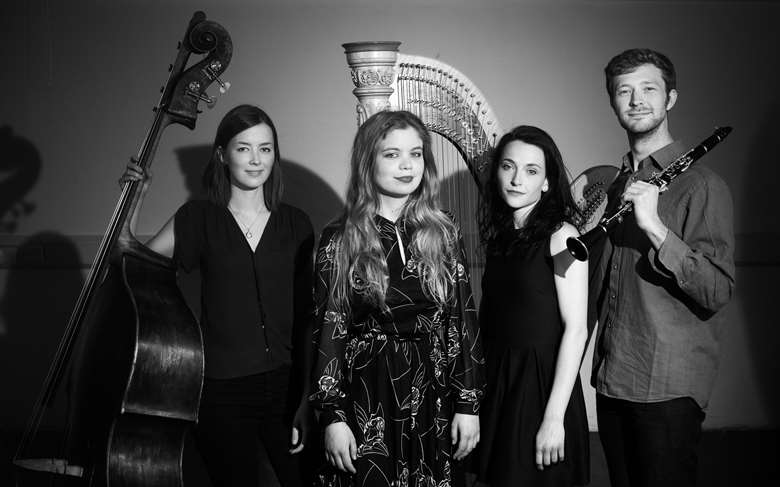The power of collaborative commissioning
Hanna Grzeskiewicz
Thursday, January 19, 2023
Hanna Grzeskiewicz of the Hermes Experiment questions how new music can be powerfully conveyed through a more collaborative commissioning process

Raphaël Neal
Having attended many premieres of works in different corners of the ‘new music’ scene over the years, I often find myself asking: what’s really new about the music I’m listening to? More often than not I can’t shake the feeling that I’ve heard a piece before. Whilst I may not have heard that particular piece, I have listened to others that were similar and required a lot of background knowledge to notice the nuances, references, structures. It is very easy to look at pop music and say that all the chart hits sound ‘the same’, but perhaps it is time to reflect and ask these questions about the ‘new music’ scene too? If I am listening to a work being premiered and I feel as if I have heard it before, is that still new music?
How to get out of a state of stagnation? One way is to look at how new works get developed. The way we work with The Hermes Experiment is to shift the focus away from straight commissioning – by which I mean a composer delivering a finished score to performers a few weeks before the premiere – to a more collaborative process. While not a ground-breaking concept, it is a way of working towards a blurring of the line between composer and performer, with works written not only for an ensemble, but with them. As an ensemble whose line-up is as unusual as ours (harp, clarinet, voice, double bass), commissioning is an inevitable part of our work. Most of the time our audiences will not know the works we are performing, but what we offer is a sound world and an experience. To borrow some language from the pop world, sometimes we like to say to each other that we are a band and our composers are our songwriters.
Musicians that specialise in contemporary music are experts on their instruments and they can be a literal sounding board for ideas that composers bring to a rehearsal. Composers often imagine a sound and they work with the musicians to produce it, expanding the possibilities of the instruments and potentially adding techniques or sound to the ensemble’s repertoire. Importantly, musicians can also help simplify scoring or instructions to achieve the desired effect. Simplicity can be a good thing. It leaves space for performative presentation, and for stories to be told.
Just as there is a difference in our emotional reception of a horror story when it's told at night around a bonfire rather than in a classroom lit by daylight, music can also be a tool for storytelling. Premiering new works happens in a context, whether that is on a traditional concert stage or the back of a pub. How you programme new works– which is not just about the other works being performed, but also the lighting, the atmosphere, the flow, and the performance space– all affects the relationship of the audience with the music they are listening to. I have listened to Messiaen’s Quartet for the End of Time many times as a live performance, and while always appreciating its beauty, the performance I still feel viscerally in my body was in the City of London Sinfonia’s CLoSer series, where the audience sat on pillows around the performers in a beautifully, dimly-lit Village Underground. Although the performance was in 2014, my memories of it are vivid; experiencing the work in that way, at that time, left an emotional mark on me.
When curating concerts, therefore, it is not just about choosing other works that sonically or thematically fit with the piece that will be premiered. It is also about imagining yourself sitting in the auditorium and thinking about how an audience member might experience or receive the work, at that time and in that space. For our upcoming project at London’s Milton Court Concert Hall, the emphasis is on building layers of sound, culminating in the world premiere of a new large-scale work by turntablist-composer Shiva Feshareki, co-commissioned with the Barbican. We’ve curated the programme to flow from The Hermes Experiment’s unique acoustic sound world, introduced first in a minimalistic work by Oliver Leith, through works that build up layers of electronics to culminate in the premiere of TRANSFIGURE, performed by the ensemble and Shiva Feshareki on turntables. By slowly adding new layers in the performance, we hope to prepare our audience for the enveloping experience of ambisonic technology that will spread the sonic conversations happening between the musicians from the stage across the entire physical space of the hall.
Our dream is one day for someone to think back to one of our performances, and remember the feeling they had while they were there.
Hanna Grzeskiewicz is co-director, alongside Héloïse Werner, of The Hermes Experiment.
The Hermes Experiment with Shiva Feshareki is at Milton Court Concert Hall, London on Thursday 26 January. More information available here








